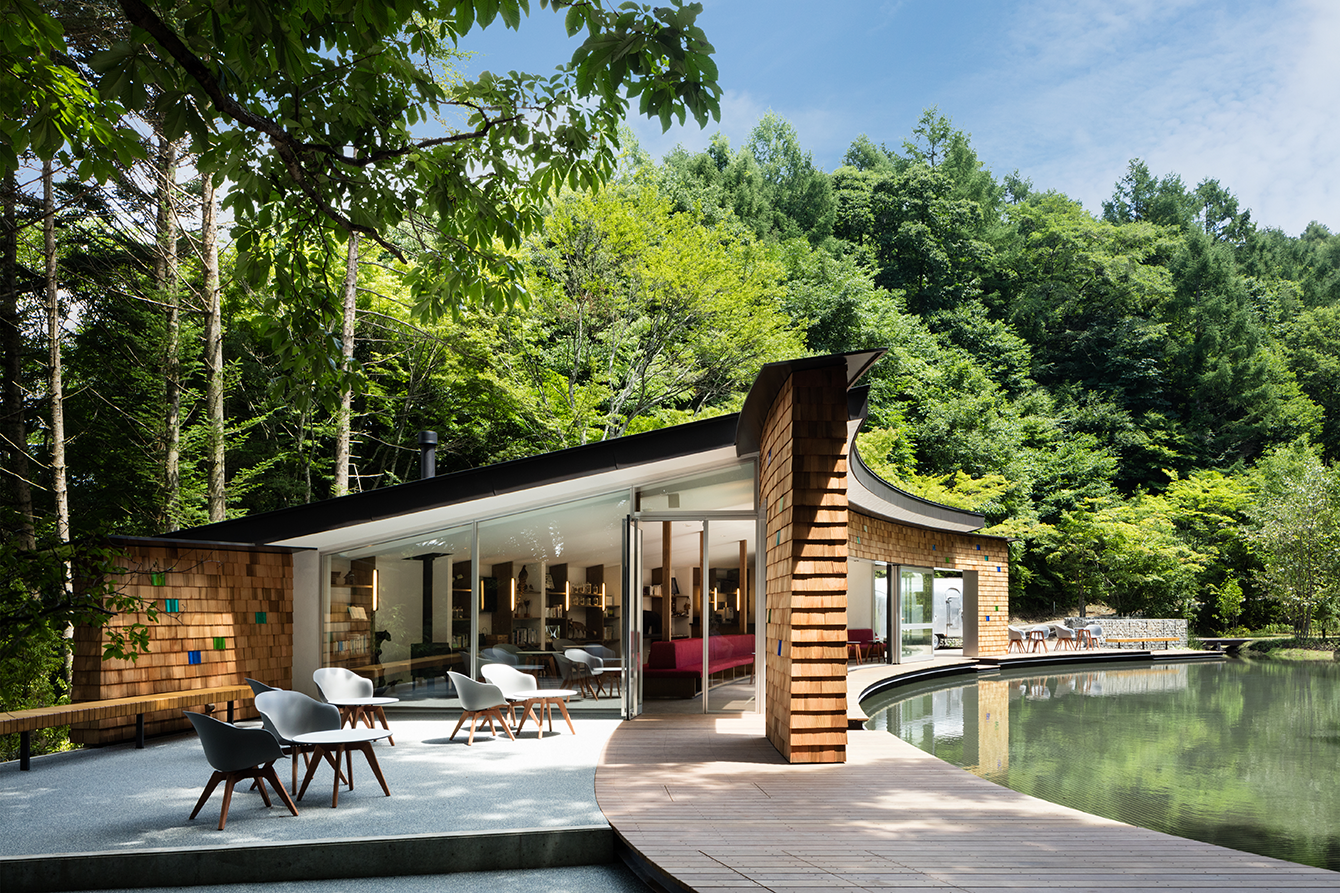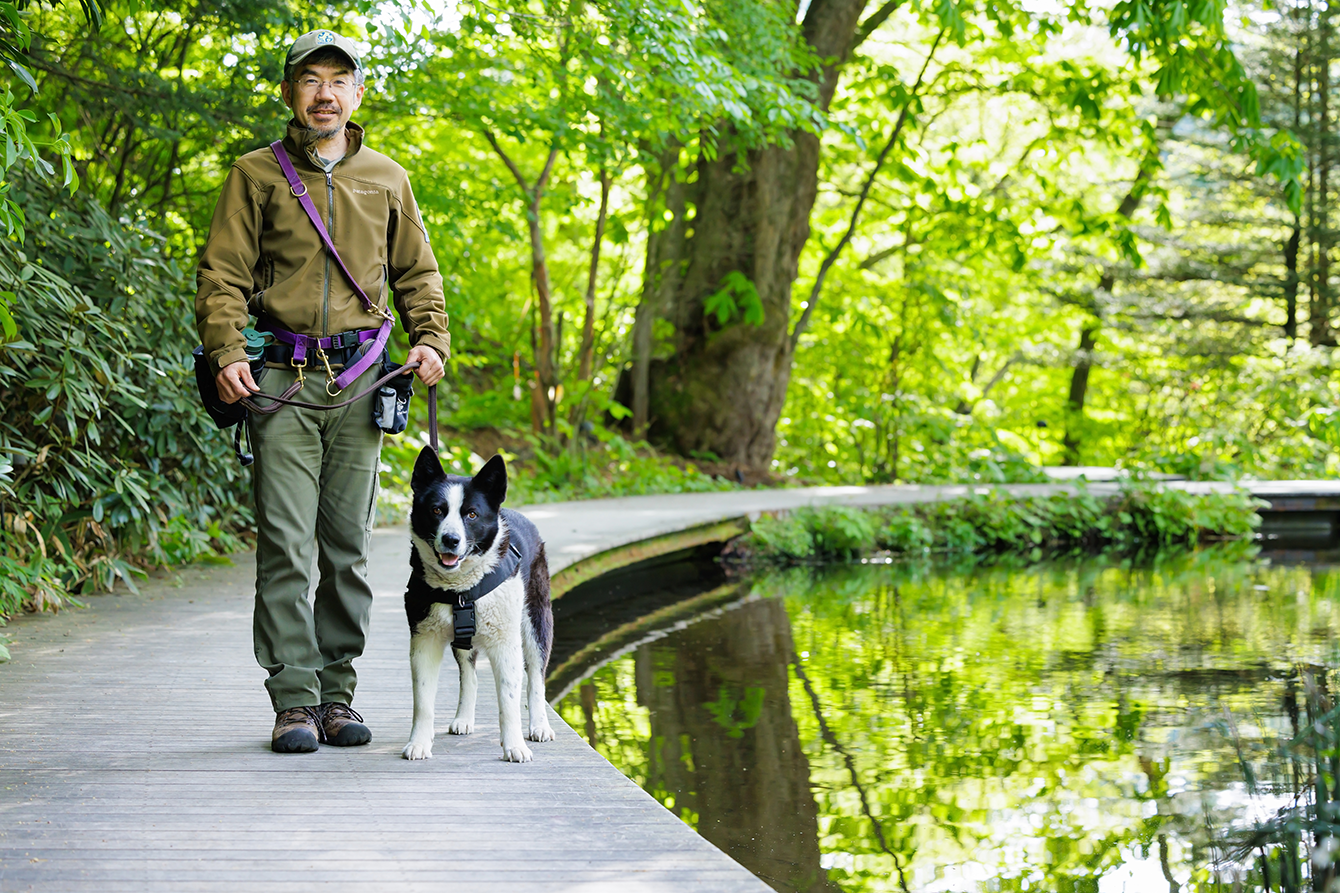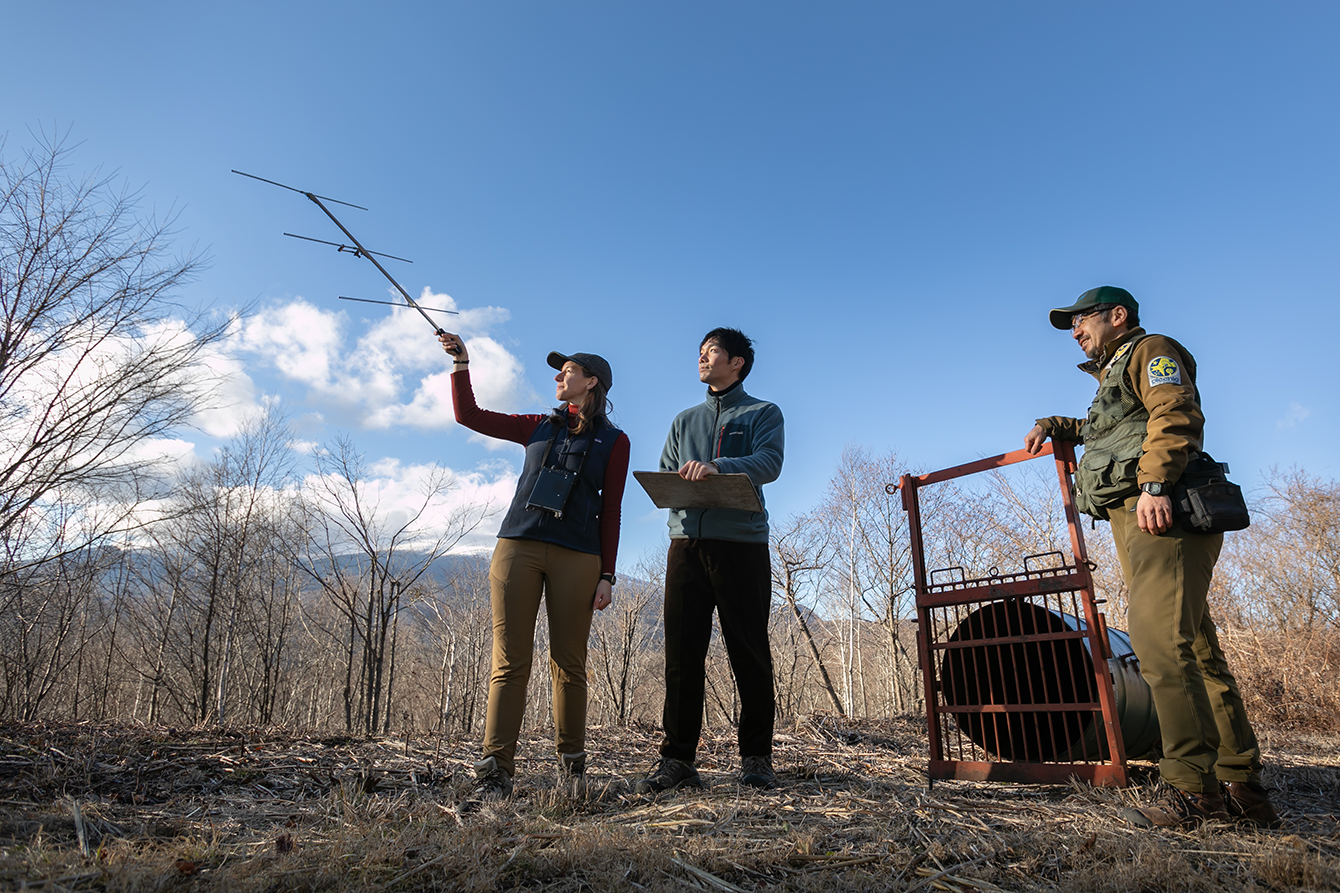Column

Junpei TanakaBear Dog Handler
I want to give back my knowledge about wildlife to society.
Picchio, located in a corner of the Karuizawa Hoshino area, helps people enjoy nature by holding nature tours and other activities. We also protect and manage Asiatic black bears in Karuizawa Town, where I work to drive bears that are close to residential areas deep into the forest.
It all started when I heard that "the relationship between humans and bears in Karuizawa is in trouble." Half of Karuizawa is a nationally designated wildlife sanctuary, and many wild animals, including Asiatic black bears, live there. However, the area has been developed as a vacation home area, and the number of residents has continued to increase. As the number of residents increases, the amount of garbage also increases. More than 20 years ago, bears began appearing in residential areas in search of food scraps from garbage dumps, and in the past, the distance between bears and humans was reduced by feeding them.
At that time, after working in Shiretoko National Park and Daisetsuzan National Park in Hokkaido, I was studying large wild animals at the graduate school of Hokkaido University, but I was unsure of my path. Should I continue as a researcher or return to the field? After much deliberation, I arrived at the idea that I wanted to give back to society with the knowledge I had gained. So I decided to move to Karuizawa.

The introduction of Japan's first "bear dogs" has transformed bear management in Karuizawa
If I had to pick the most memorable experience since becoming a part of Picchio, it would be meeting the "bear dogs" (dogs that have been specially trained to detect the scent and presence of bears).
When I joined in 2001, humans were chasing away bears. Bears are very wary, and it was difficult to deal with them in the dark when they would come down to human settlements at night. When I worked in Shiretoko, we used guns loaded with rubber bullets and firework bullets, but in Karuizawa, we were not allowed to use them due to the Firearms and Swords Act, and we couldn't enter carelessly because we didn't know where they were hiding. So in 2004, we introduced bear dogs to Japan for the first time from an American bear dog training institution. I received two Karelian bear dogs and trained them as a bear dog handler.
When a bear dog detects a bear, it charges forward regardless of the time of day or night and barks loudly. The bear is overwhelmed by the force and runs away into the forest. My job is to go on patrols with the bear dog and drive away bears so that they do not enter areas where people live. In Karuizawa, bears are captured in advance, fitted with transmitters, and their behavior is monitored. There are currently about 30 bears being tracked. This is also part of the Asiatic black bear conservation and management project that the NPO Picchio has been conducting for over 20 years under the commission of Karuizawa Town.

If we don't face the bears, there is no future for Karuizawa
I believe that the presence of bears is what makes Karuizawa so attractive. Bears cannot reproduce without the blessings of the forest. The presence of bears is the same as an abundance of nature.
Some may say that if we make bears extinct, we will be able to live in peace without fear, but I believe that it is honorable for humans to have the emotion of fear. Furthermore, when we forget this, I think we will become arrogant towards nature. Currently, global warming is progressing and various abnormal weather events are occurring, which means that humans are being punished by nature. If humans are to survive in the future, we need to think about how we should deal with bears.
Picchio aims for the coexistence of humans and bears, and offers study tours to understand the overall picture of bear conservation management, as well as tours that allow participants to experience how to track and capture bears. People from overseas are highly conscious of protecting nature and interacting with plants and animals, and have taken notice of this as a model case for preserving the local ecosystem. We hope that this positive chain of events will continue to spread into the future.


Junpei TanakaBear Dog Handler, NPO Picchio
Completed a master's course at the Graduate School of Agriculture, Hokkaido University. While studying at the same graduate school, he conducted research on the population dynamics of Ezo deer on Nakajima Island in Lake Toya. He has experience working in the conservation and management of brown bears and Ezo deer in national parks in Shiretoko and Kushiro. In 2001, he joined Picchio in Karuizawa Town, Nagano Prefecture, and promoted the town's Asiatic black bear conservation and management project from its inception. In 2004, he collaborated with a bear dog breeding organization in the United States and introduced the first bear dog breeding program using Karelian dogs to Japan.

The Hoshino area is a place where you can experience the world of "In Praise of Shadows"

The Hoshino area has the potential to become a hub for environmental education.

Enchanted by Karuizawa, where you can vividly experience the changing seasons

It has always been and will continue to be a place where everyone can gather and talk.

Aiming to create a future where people and bears can live together

I hope that you will continue to improve your "curation skills" in the future.

A turning point in my career as an artist occurred with the Karuizawa Hoshino area




